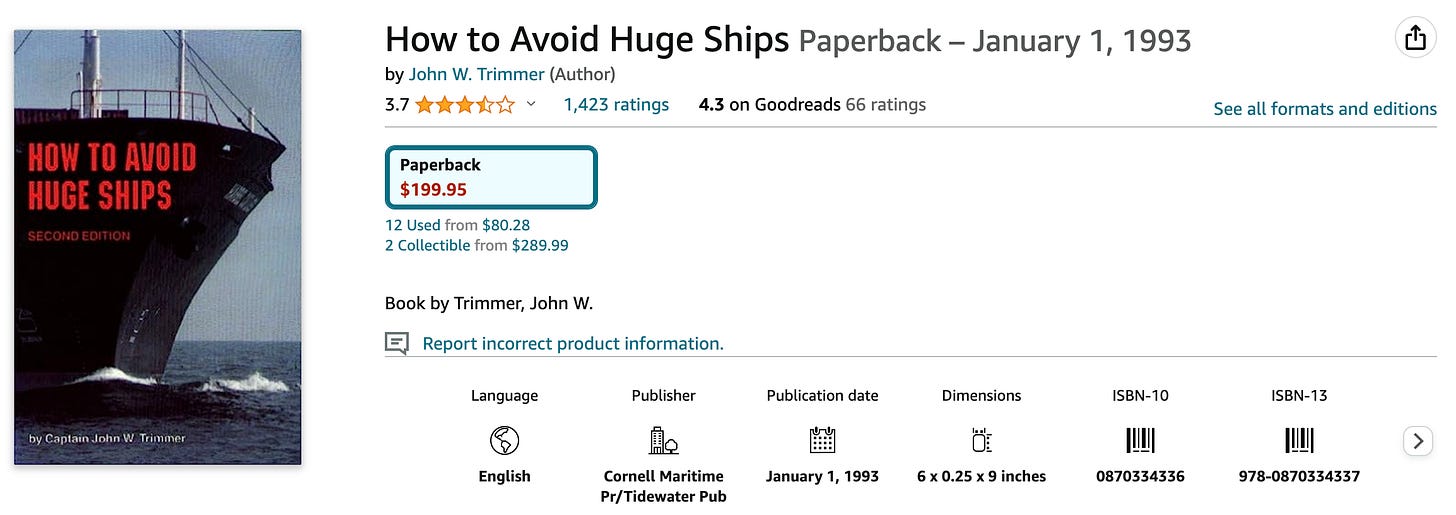The Illusory Internet - 9523
"The greatest obstacle to discovery is not ignorance, it is the illusion of knowledge." - Daniel J. Boorstin
Reviews that aren’t reviews. Where did catfishing come from? The Internet has a weight? Fast start to the Holiday week. Let’s jump in.
The Daily Rabbit Hole: Where “catfishing” on the Internet got its name.
“They used to tank cod from Alaska all the way to China. They’d keep them in vats in the ship. By the time the codfish reached China, the flesh was mush and tasteless. So this guy came up with the idea that if you put these cods in these big vats, put some catfish in with them and the catfish will keep the cod agile. And there are those people who are catfish in life. And they keep you on your toes. They keep you guessing, they keep you thinking, they keep you fresh.”
The more accurately we try to measure coastlines, the longer they get. If you think that sentence is written incorrectly, I don’t blame you. Read it again:
The more accurately we try to measure coastlines, the longer they get.
The reason this statement is true, is because of something called fractal dimensions. “The main idea of "fractured" dimensions has a long history in mathematics, but the term itself was brought to the fore by Benoit Mandelbrot based on his 1967 paper on self-similarity in which he discussed fractional dimensions.”1 I could continue down the path of trying to explain this to you but it would require some theorems and proofs and let’s be honest, no one wants to revisit high school math on a Tuesday.
So I’ll show you instead:
The ‘Wait, What?’ Vortex: The Internet weighs about as much as a tennis ball.
“… the Internet runs on electrons. That's how the information is stored. And electrons are very, small. But they do have mass.”
BRB changing the URL to theinternetisvastbutnearlyweightless.com
How to Avoid Huge Ships
In 1993, John W. Trimmer published the second edition of his book “How to Avoid Huge Ships.” This was well before the Internet was anywhere close to mainstream, and I’m not sure even Trimmer himself could have predicted what would become of his book 30 years later.
Here are some excerpts from the reviews:
“You want to make sure you buy the latest edition so that you have the most up-to-date information. Do you want to get run over by a huge ship just because you neglected to buy the latest edition? No, I didn't think so.”
“We shouldn't just be avoiding huge ships. We should be confronting them. If we spend our lives running away, the huge ships win.”
“I found the recommendation to go right to be absolutely spot on, not to mention being extremely well written and adequately researched. However, the recommendation to go left was a bit lacking, and left me wondering if I would in fact be able to avoid large ships with this questionable method.”
“I can't help but think this is simply another attempt of the Anti-Huge Ship movement to promote their extremist agenda.”
“Seriously?! How to avoid huge ships?! How stupid do they think people are? I consider myself a cautious person and believe it’s always good to plan for the worst, but to need this type of advice is asinine. They’re easy to spot, slow moving, and needless to say, a rare occurrence. Good luck to anyone who would... what the heck is that?? OH MY GOD! Aaaahhhhh!!! . . .” 3 stars
There are plenty more reviews worth reading, some of which could easily be turned into animated shorts worthy of Oscar consideration. The Internet truly does allow for something as innocuous as a book with a funny title to take on a life of its own and it serves as a reminder that no matter how deep we might dig, the Internet will always be more … vast.





